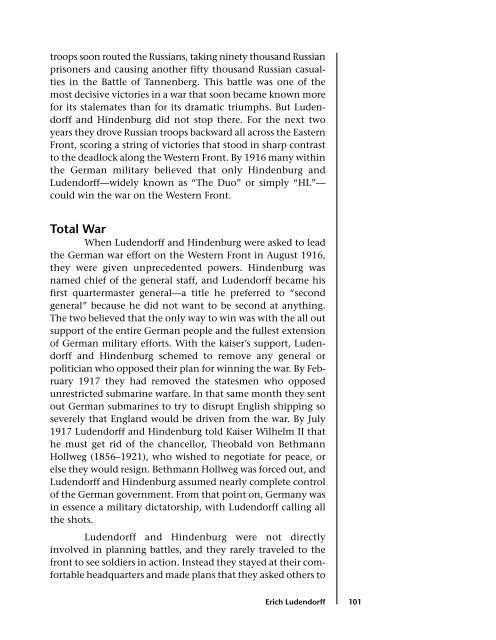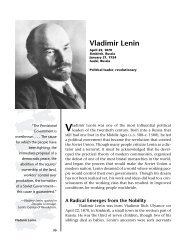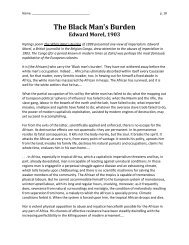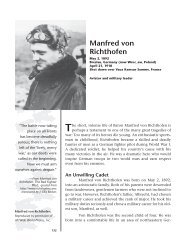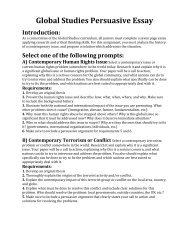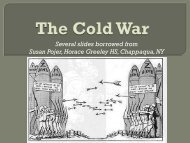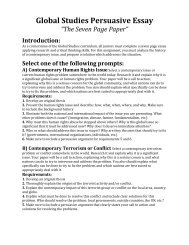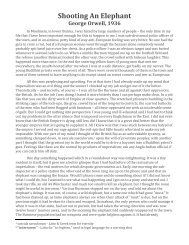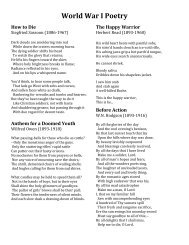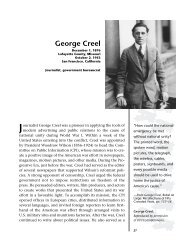Erich Ludendorff
Erich Ludendorff
Erich Ludendorff
You also want an ePaper? Increase the reach of your titles
YUMPU automatically turns print PDFs into web optimized ePapers that Google loves.
troops soon routed the Russians, taking ninety thousand Russian<br />
prisoners and causing another fifty thousand Russian casualties<br />
in the Battle of Tannenberg. This battle was one of the<br />
most decisive victories in a war that soon became known more<br />
for its stalemates than for its dramatic triumphs. But <strong>Ludendorff</strong><br />
and Hindenburg did not stop there. For the next two<br />
years they drove Russian troops backward all across the Eastern<br />
Front, scoring a string of victories that stood in sharp contrast<br />
to the deadlock along the Western Front. By 1916 many within<br />
the German military believed that only Hindenburg and<br />
<strong>Ludendorff</strong>—widely known as “The Duo” or simply “HL”—<br />
could win the war on the Western Front.<br />
Total War<br />
When <strong>Ludendorff</strong> and Hindenburg were asked to lead<br />
the German war effort on the Western Front in August 1916,<br />
they were given unprecedented powers. Hindenburg was<br />
named chief of the general staff, and <strong>Ludendorff</strong> became his<br />
first quartermaster general—a title he preferred to “second<br />
general” because he did not want to be second at anything.<br />
The two believed that the only way to win was with the all out<br />
support of the entire German people and the fullest extension<br />
of German military efforts. With the kaiser’s support, <strong>Ludendorff</strong><br />
and Hindenburg schemed to remove any general or<br />
politician who opposed their plan for winning the war. By February<br />
1917 they had removed the statesmen who opposed<br />
unrestricted submarine warfare. In that same month they sent<br />
out German submarines to try to disrupt English shipping so<br />
severely that England would be driven from the war. By July<br />
1917 <strong>Ludendorff</strong> and Hindenburg told Kaiser Wilhelm II that<br />
he must get rid of the chancellor, Theobald von Bethmann<br />
Hollweg (1856–1921), who wished to negotiate for peace, or<br />
else they would resign. Bethmann Hollweg was forced out, and<br />
<strong>Ludendorff</strong> and Hindenburg assumed nearly complete control<br />
of the German government. From that point on, Germany was<br />
in essence a military dictatorship, with <strong>Ludendorff</strong> calling all<br />
the shots.<br />
<strong>Ludendorff</strong> and Hindenburg were not directly<br />
involved in planning battles, and they rarely traveled to the<br />
front to see soldiers in action. Instead they stayed at their comfortable<br />
headquarters and made plans that they asked others to<br />
<strong>Erich</strong> <strong>Ludendorff</strong> 101


